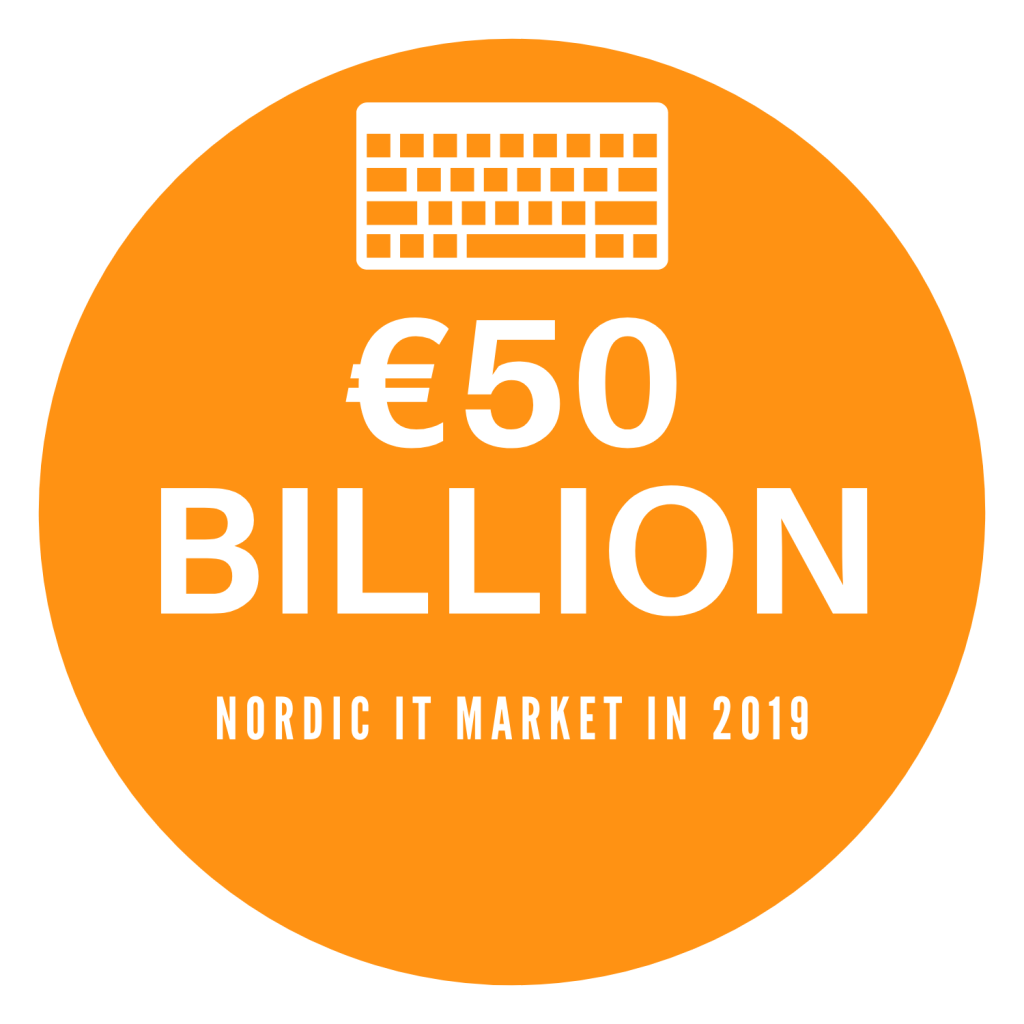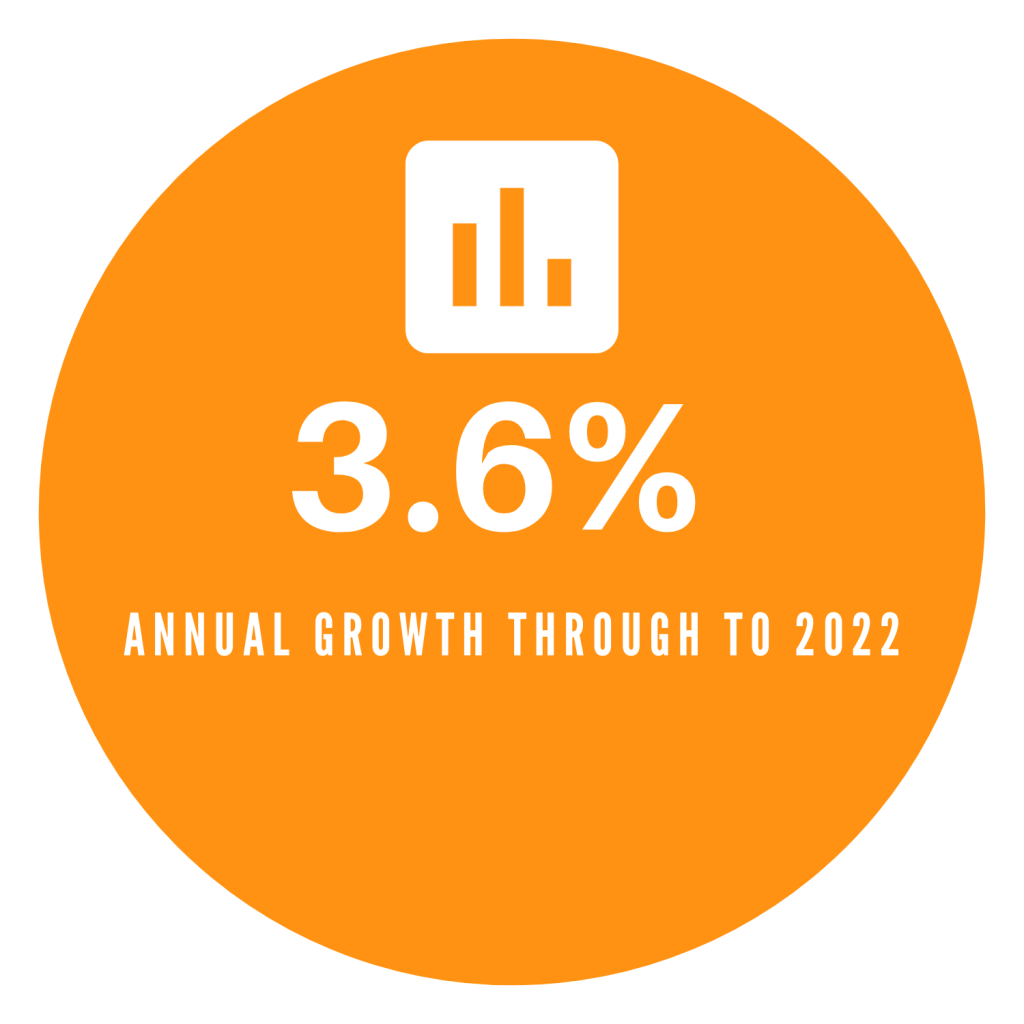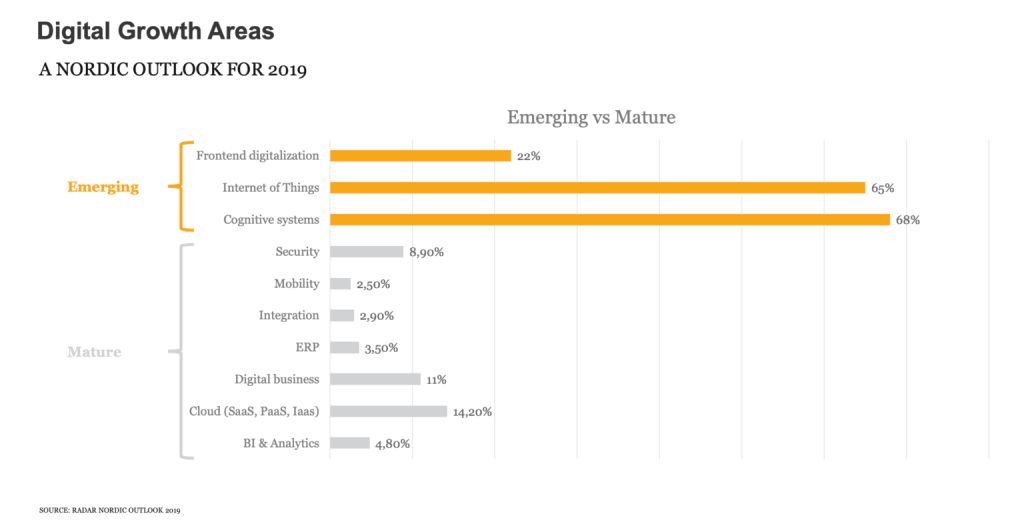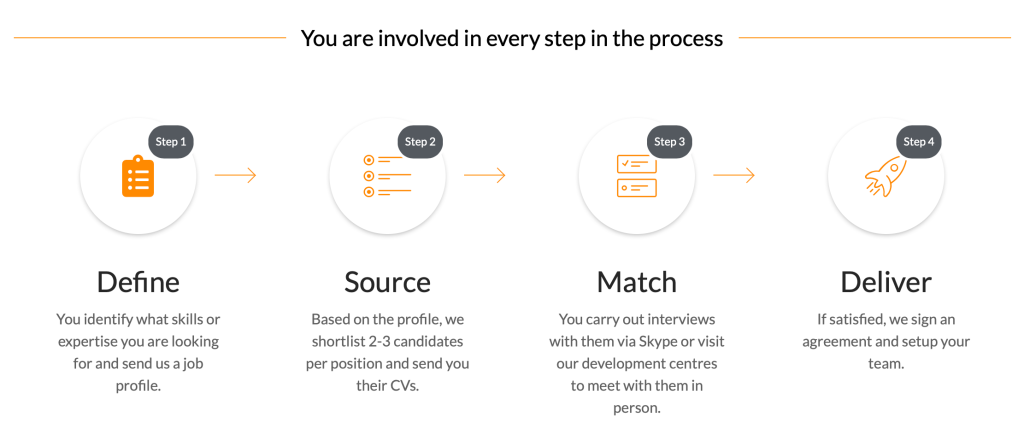What Are The Outsourcing Changes In The Nordic IT Market?

- 10 August 2020
- 0 Comments
The Nordics are global leaders in innovation with high R&D expenditure and strong, stable economies. Emerging technologies are welcome and incorporated extensively in organisations, leading to a cost-efficient and customer-relevant digital transformation journey.


Emerging technologies with a high digital growth rate include frontend digitalisation, internet of things and cognitive systems. Nordic organisations are spearheading IoT technologies and services innovation. Their expenditures in this area amounted to €12 billion in 2018 with a forecast of €20 billion by 2022, reports IDC’s 2019 Nordic Digital Insights. AI solutions on the other hand are experiencing a high average annual growth rate with AI implementation in Nordic enterprises reaching 20% in 2019.

Louise von Blixen-Finecke from Bearing Point states, ‘Organizations that are capable of leveraging analytics and driving cultural change to manage the overwhelming complexity of data and digital transformation will be the digital leaders of the future.’
Nordic organisations are experiencing rapid digital maturity, but there is room for improvement. Technology legacy, organisational structures, management and culture can lead to a digital deadlock. This also rings especially true when it comes to the IT talent shortage.

Finding the right talent during a talent shortage
There is no doubt that digital transformation is a critical part of enterprise strategy. Employee’s ICT skills lay a solid foundation for organisations to carry out important functions from cloud infrastructure operations, IT security to enterprise application software.
Unfortunately, advances in digital transformation are hardly met by the education system or on-the-job training. Training investments and a continuous cycle of re-skilling/up-skilling existing staff will make for a more demanding talent-sourcing environment. Competition for talent will enter a niche area of ‘skills just in time’, making workforce management, and skills sourcing in search of new markets.
Cross-industry competition will should be a key focus for IT service providers. Strong strategies for acquiring, retaining and developing talent and skills are needed to succeed in a business environment where a range of Nordic industries create digital push-and-pull dynamics.

Reasons for Nordic entrepreneurs outsourcing in 2019
‘No doubt, this will be an interesting year to track the increased demand in the shared services and outsourcing market, as we abandon traditional models and transition into a new generation of outsourcing,’ claims KPMG.
Service providers and Nordic advisors’ top 3 initiatives last year were the following:

In 2020, 84% of service providers claimed that cost reduction is the main reason for outsourcing, reports Whitelane. This is another form of pressure the IT sector is facing. While IT over the years has caused steady growth for business and greater agility, pressures for cost reductions and better efficiency are escalating. This has inevitably led to the next initiative.

Routine processes can set back an organisation from focusing on its core competencies. Automation provides a call-to-arms for better cost reductions, greater efficiency and business agility. For the record, automation doesn’t indicate an AI technocrat overlord replacing humans with machines. It means automating routine tasks so that IT specialists can strategically prioritise the more value-creating activities in their digital labour. Workforce management continues to be highly critical factor in achieving the most with global talent.

One of the biggest challenges, as previously mentioned, is the lack of skilled talent. Finding the right IT skills match for organisational success is difficult as technology tends to advance more quickly than global education systems can keep up with the demands for particular specialisations. Other issues are dysfunctional operating models and inadequate IT infrastructure. Contract management stands out in this regard. Too many contracts and subcontracts and emphasis on making them attractive take focus off of managing a contract throughout its lifecycle.
Value is lost when organisations are unable to improve their management of contractual obligations, changes in contract and supplier relationships. Thankfully, better technology, such as automation, can step in at this point to help monitor and manage the many elements of contract lifecycles.
This as a result brings into question the ideal of Nordic mega-outsourcing deals to find new IT talent, which have ranged over €100 million, according to KPMG. With better contract management technology and issues with vendor locking-in and competitive pricing, multi-sourcing might provide more flexibility in finding talent with domain-specific knowledge. For this reason, organisations are increasing their use of multi-sourcing to better access top talent.
As digital growth spikes upward, the competition for on-demand IT talent outsourcing will take on new technologies, management and cost considerations. Organisations that keep up with the trends, such as automation, multi-sourcing and improving operating models, will excel in their hunt for talent.
Building dedicated development teams with Ultiro
Ultiro is an IT company based in Sweden that supports Nordic businesses and organizations create innovative dedicated development teams with global tech talent. Ultiro’s offshore development centres keep organisations up-to-date with the right software development, IT environments and technologies to help businesses create more business value.
How Ultiro can help you build development teams that work:

What are the advantages of working with Ultiro?
- Fast team building process
Depending on your needs, such as number of developers or finding talent with rare domain-specific skills, we can build a dedicated team within a few weeks.
- Price-competitive solutions
We charge half the market price with 30-40% faster developing tempo. With a much lower cost and more efficient solution, you can more easily reach your organisational goals.
- Extensive database to help you find the right candidate
We have the ability to organise many interviews along with code reviews, references from previous clients and more to ensure a top talent match.
- A range of languages and technologies, such as C++, Scala, Magento, Java, C#, JavaScript, PHP, and Python and more
Let us know about your your specific technical needs, and if we don’t currently have the IT talent, our flexible work model allows us to source the appropriate candidates quickly.
- No upfront costs or cancellation fees
Setting up a team is free of charge. Ultiro’s development centres equip dedicated development teams with all the necessary hardware, software, technologies and works spaces so they’re ready to start working with your organisation right away.
